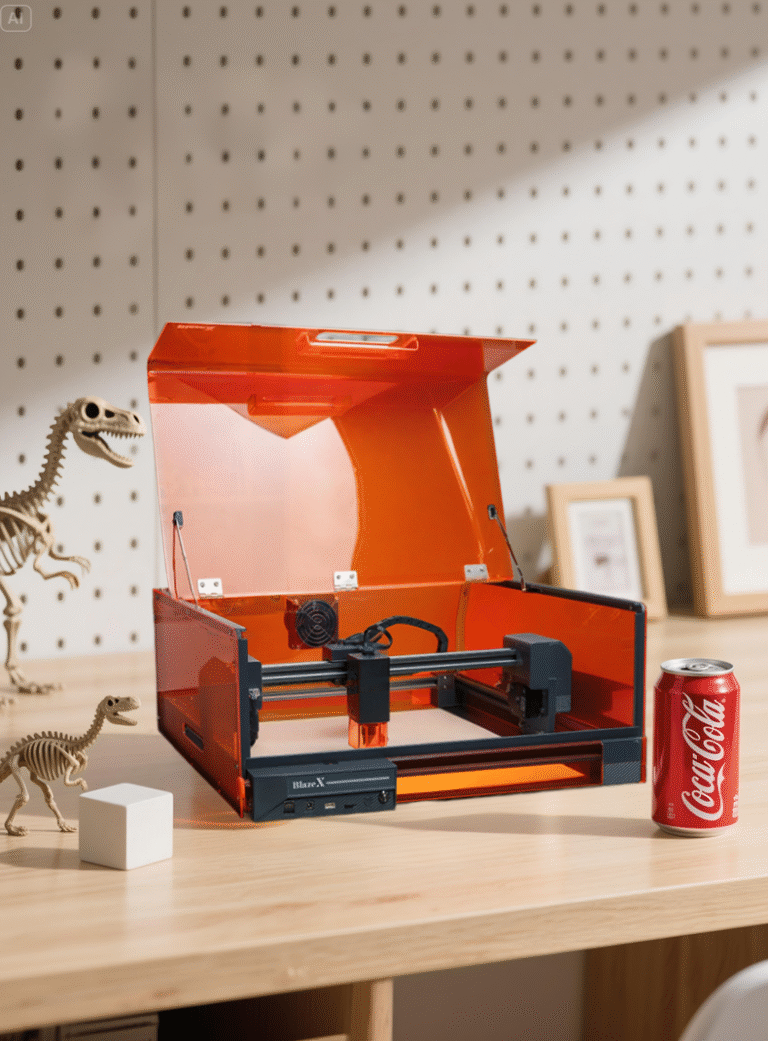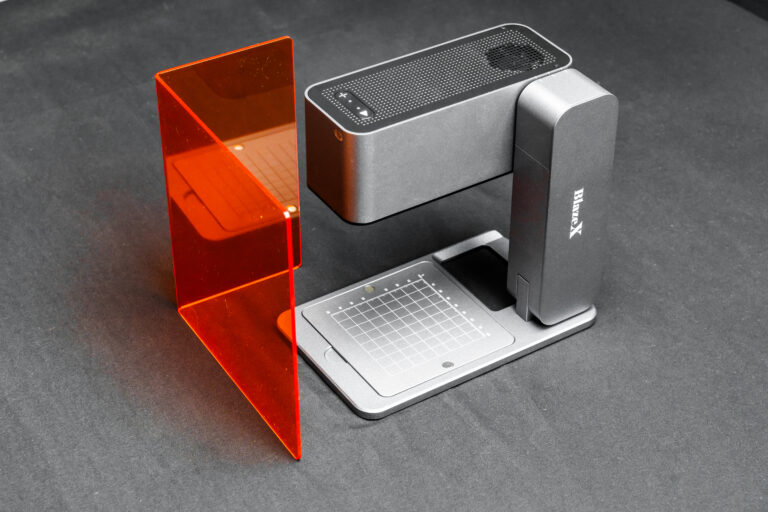
Share:

In an era where sustainability is non-negotiable, laser engraving technology has emerged as a silent environmental hero—transforming raw materials with precision while leaving minimal ecological footprints. As industries face mounting pressure to reduce waste and emissions, eco-friendly laser engraving solutions are rewriting production playbooks, one sustainable pulse at a time.
Why Laser Technology is Inherently Sustainable?
Unlike subtractive manufacturing methods, eco-friendly laser engraving operates on a “less is more” philosophy, delivering three game-changing environmental advantages:
1. Zero-Contact Processing
The non-contact nature of laser beams eliminates physical tool wear and material stress. When engraving wood or acrylic, this means near-zero material waste—no wood chips or acrylic shavings contaminating workspaces or landfills. Traditional mechanical engraving wastes up to 20% of materials; laser systems reduce this to under 3%.
2. Chemical-Free Operations
Consider denim production: Traditional “distressed jeans” techniques require thousands of liters of water and toxic chemicals per batch. Golden Laser’s denim engraving machines replicate vintage effects without water or chemicals, achieving 50% water savings while eliminating chromium runoff.
3. Energy-Efficient Precision
Modern CO₂ lasers like Gravotech’s integrated systems consume 30% less energy than comparable CNC routers. Their “air assist” technology focuses energy into micron-accurate beams, completing jobs faster with reduced power consumption.
Highlights of laser engraving of sustainable materials
1. Reclaimed Wood & Bamboo
① Environmental Edge: Using fallen timber or fast-growing bamboo avoids deforestation. Laser settings can be tuned to prevent charring—preserving natural aesthetics without stains.
② Technical Sweet Spot: 60–80% power at 150–300 mm/s creates detailed engravings while minimizing carbon residue.
③ Commercial Impact: Custom wood product makers report 40% less material waste versus CNC routing.
2. Recyclable Plastics & Acrylics
① Circity Advantage: Laser-marked PET/HDPE packaging (like P&G’s LaserSharp technology) retains 100% recyclability since no adhesives or inks contaminate streams.
② Safety Protocol: Advanced fume extraction systems filter out microplastics and VOCs—a feature in Fangde Laser’s sealed machines.
3. Glass: The Ultimate Closed-Loop Material
① Waste Reduction: Internal laser engraving produces zero glass dust versus mechanical etching. Designs remain subsurface—extending product lifespan by 3–5 years by preventing surface degradation.
② Carbon Savings: Automated laser systems cut production energy by 65% compared to sandblasting.
4. Plant-Based Leather Alternatives
① Vegan Innovation: Lasers etch pineapple leather (Piñatex) or mushroom leather with 15–30% power pulses, creating intricate patterns without toxic tanning chemicals.
② Supply Chain Benefit: On-demand digital production prevents overstock waste—critical for biodegradable materials with shelf lives.
Cutting-Edge Eco-Engineering in Laser Systems
A. Closed-Loop Filtration Systems
Modern machines like Fangde Laser’s patented sealed engravers trap 99.7% of nanoparticles using:
– HEPA filters for micro-dust
– Activated carbon beds for VOCs
– External exhaust ports for safe emission routing
B. Energy-Recovery Architectures
Industrial lasers now convert waste heat into energy:
– Thermoelectric generators capture laser tube heat for auxiliary power
– Regenerative braking systems harvest kinetic energy from gantries
– Result: 15–22% net energy reduction per job
C. AI-Optimized Material Usage
Machine learning algorithms now:
– Auto-nest designs to maximize sheet utilization
– Predict optimal power settings to prevent trial-run waste
– Reduce scrap rates by 18–30% in production environments
Industry Transformations of Eco-Friendly Laser Engraving
1. Fashion’s Water Revolution
Denim giants like Levi’s and H&M now use Golden Laser’s systems to:
– Create “worn” designs sans water-intensive washing
– Personalize jackets without screen-printing chemicals
– Achieve 10-person productivity with one machine
2. Packaging’s Label-Free Future
P&G’s LaserSharp technology marks bottles directly:
– Eliminates 280 million plastic labels annually
– Enables instant language/country customization—no landfill-bound misprints
– Passes APR/RecyClass certification for seamless recycling
3. Carbon-Negative Manufacturing
Balsa wood solar evaporators laser-engraved with graphene achieve:
– 110% solar energy conversion efficiency
– 90%+ lipophilic pollutant removal from water
– Zero chemical filters required
Sustainable Laser Tech Trends
1. “Green Pulse” Certification
Emerging standards will rate lasers on:
– Grams of CO₂ per engraving hour
– Filtration efficiency ratings
– Recyclability of machine components
2. Bio-Based Material Databases
Cloud libraries will auto-recommend settings for:
– Algae-based bioplastics
– Mycelium composites
– Recycled ocean plastics
3. Circular Lifecycle Integration
Forward-thinking manufacturers now design:
– Fully disassemblable laser chassis
– Remanufactured component programs
– Take-back schemes for end-of-life units
Eco-friendly laser engraving isn’t just ethically smart—it’s economically inevitable. Consider:
① Material savings cover machine costs in 14–18 months
② 64% of global buyers pay premiums for sustainably made goods
③ Future-facing regulations (like single-use plastic bans) make traditional methods obsolete
“Laser marking is the future of sustainable packaging—it doesn’t compete with green solutions; it defines them.” Audit your material workflow. Could reclaimed wood or recycled plastics handle your next batch? Test samples with 30W+ CO₂ lasers—you might discover waste isn’t “inevitable” after all.
Ready to join the green beam revolution? Explore our certified eco-engraving systems—where every pulse respects our planet’s boundaries.






Have a Question? We’re Just a Click Away